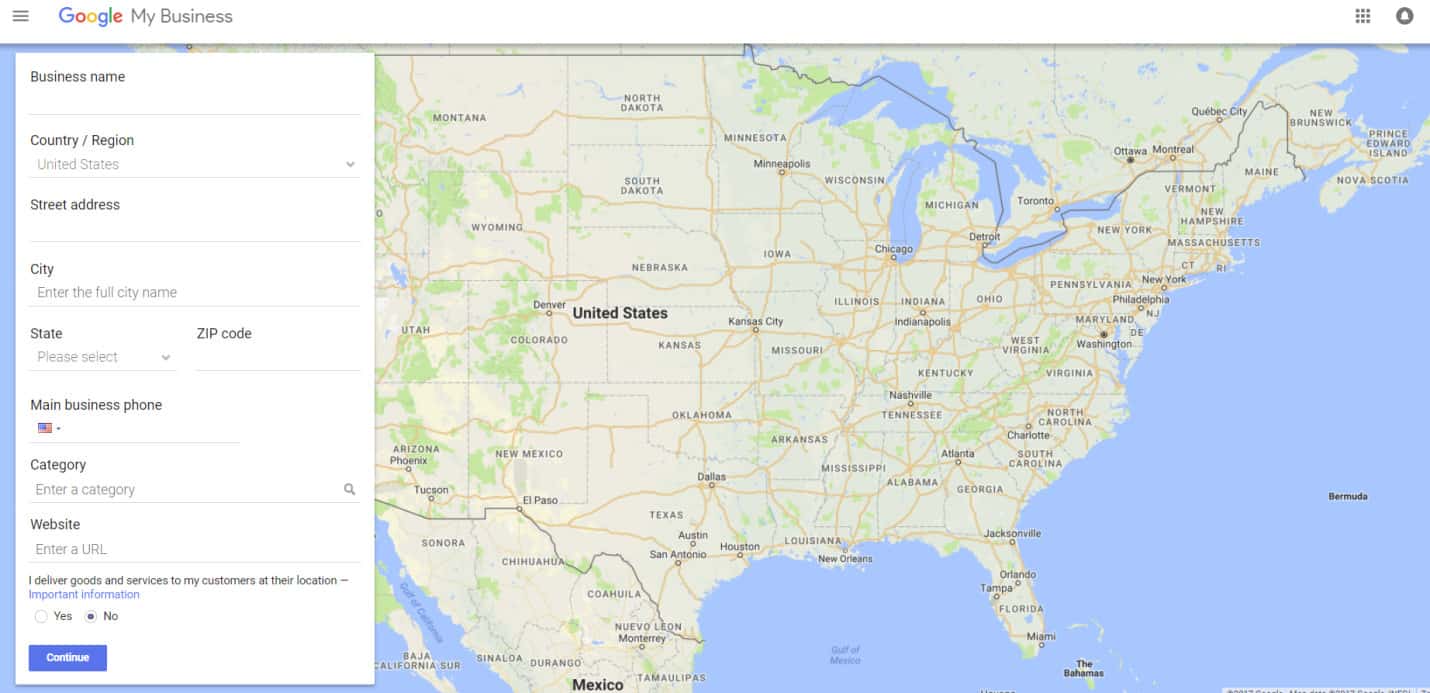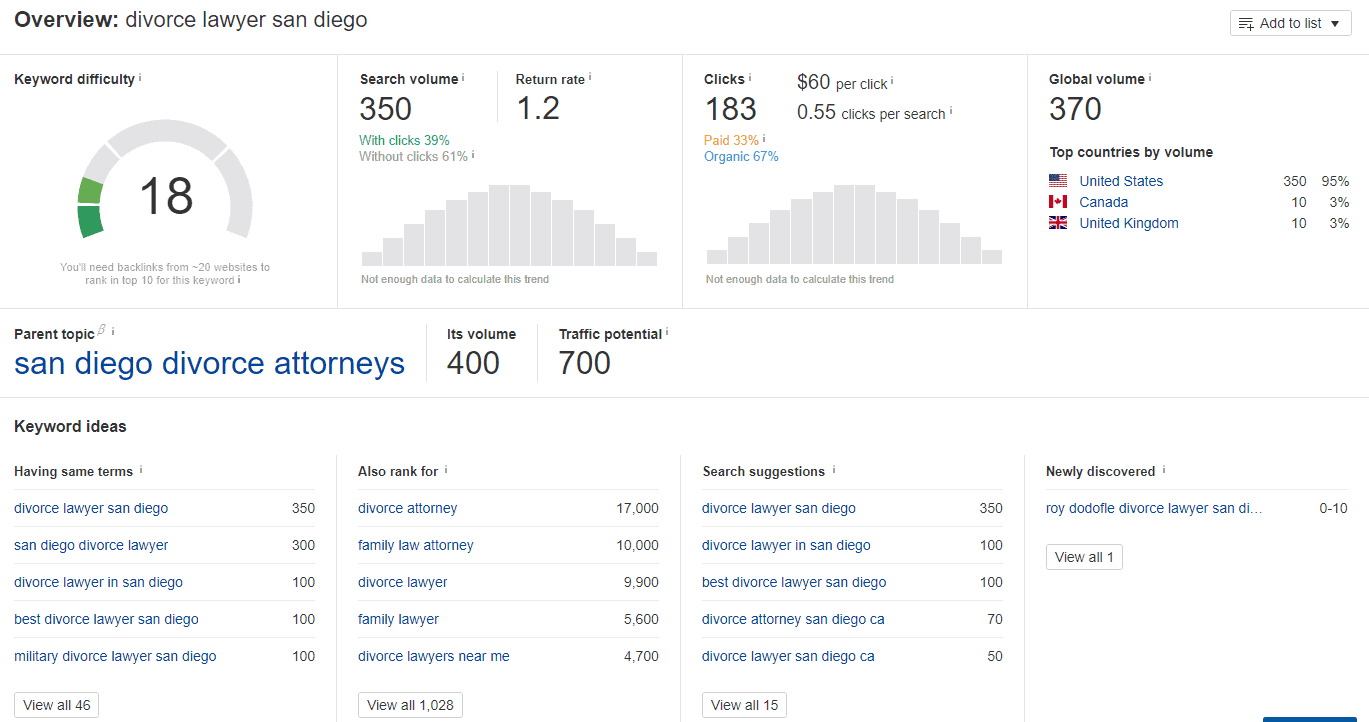One SEO expert shares the four tactics you must follow if you ever want your firm to rank well on search engines.
When people are searching for legal services online, there are two key characteristics that influence decision making:
- Proximity
- Credibility
Over 90% of online experiences begin with a search, and VERY few of those searches go past page one. The legal industry is extremely competitive. Regardless of how good your services are, ignoring local SEO is one of the biggest mistakes you can make. Your positioning on local searches can impact a potential client’s decision in a matter of seconds. In many ways, this is today’s version of the yellow pages.
If SEO isn’t on your list of priorities, you are missing out on all kinds of valuable leads and traffic. Fortunately, there a lot of surface level tweaks and measures you can take to drastically improve your rankings.
Here are a few of the major points.
1. Verify Your Practice on Google My Business
If you haven’t already, don’t wait for another second in getting verified on Google My Business. Google My Business pages essentially create a mini-site for your business within Google’s framework. This makes the process of getting your website and information to the top of the search rankings MUCH quicker and easier.
Verifying your practice can be done with a few easy steps.
Then, you can add images to your page. These should include your location, building, headshot, or anything relevant to your offering. Make sure the images have a sharp focus and are sized between 10KB and 5MB.
When it comes to local SEO, getting your practice verified on Google My Business should be done immediately after setting up your physical office.
2. Keep Up on Local Keywords
Researching the trending keywords in your area is the foundation of any local SEO strategy. When people enter a query into the search bar, the algorithms place content and websites based on how well their content can provide value in relation to user intent.
The goal of keyword research is to pinpoint the queries people are searching for in regards to the services you offer. Then, you create groups of these terms to strategically place on your website. These keywords should be present in your content (without overstuffing), title tags, URLs, meta descriptions, etc.
This process can be done with a very basic knowledge of SEO. Using tools like Ahrefs Keywords Explorer, you can get a good impression as to what people are searching for (as well as what they’re clicking on) when they need your services.
For example, let’s say you are a divorce lawyer in San Diego. If you enter in “Divorce Lawyer San Diego,” the platform will provide you with suggestions in regards to related terms and new phrases being searched for:
These are the terms you’ll want to include across your web pages. Keep in mind, you don’t want to strictly target the broader keywords with high competition. Search terms like “San Diego Lawyer” or “Attorney in San Diego” will be incredibly difficult to rank for.
When putting together keyword lists for your content, get specific with what you offer. For instance, if you specialize in divorce cases for same-sex couples, or collaborative divorce, you’ll want to look for localized keywords in relation to those topics.
Keyword trends change by the day. If you want to maintain healthy rankings, you need to make it a point to conduct smart keyword research and adjust your content accordingly.
3. Get More Link Juice
One of the most crucial aspects of SEO is link building. It can be an influential factor in moving your website to the promised land that is page one of the SERPs.
So what exactly is Link Juice?
This refers to the authority, or amount of value, a link passes to the external website it connects with. A more technical term would be “link equity.”
It’s important to note that not all websites hold the same amount of juice. A website is assigned levels of authority (or juice) based on how trustworthy and credible it is in the eyes of Google. If you can get high authority sites to link to yours, this will pass on the link juice and improve your rankings.
This concept is considered one of the top ranking factors in SEO.
So how can you get more juice?
For starters, as a law firm, you want to get as many links as possible on relevant sites. This can include citations, local directories, blogs, resources pages, ect.
Next, you need to know how to create valuable content that proves your expertise. Then, you should try to produce this content on reputable high authority websites in your area.
Consider reaching out to local online magazines, industry association websites, or anything else related to your niche to write a guest post. Within this post, you can include a backlink to your website.
In essence, the more links you get from credible websites, the more credible you will be in the eyes of Google. As Google’s primary objective is to provide users with the most relevant and valuable information, getting more link juice is one of the best ways to boost your rankings.
4. Actively Pursue Reviews
Everyone knows how important online reviews are in purchasing decisions these days. A 2017 study found that 97% of consumers read online reviews prior to interacting with a local business. Google is well aware of this concept. A local business review is extremely valuable and can heavily impact your rankings. In an ultra-specialized industry like law, reviews can make or break your business.
The process of getting reviews starts by registering and claiming your practice on the major platforms, like Yelp, Google, TrustPilot, and Facebook.
There are many strategies to consider when reaching out. For one, after the services have been rendered, make it a point to send a follow-up email asking for an honest review. You can also use social media to ask specific questions.
Keep in mind, you need to respond to reviews. If the sentiment is negative, don’t freak out. Choose your words wisely to paint your image in the right light. Tools like Brandwatch will alert you whenever you get a new review, so you can respond promptly.
Obviously, the more positive reviews you have, the better rankings you will receive on the local search. Pursuing reviews can always be a bit worrisome, as you don’t have control over what is said. This is why you need to commit to providing clients with the best possible experience every time.
In Conclusion
The importance of local search cannot be overstated for law firms. As the process of choosing an attorney often times requires a lot of research, the best thing you can do is make sure your services and offerings are placed in front of the right eyes at the right time.
It’s never too late to get started on a local SEO strategy. The sooner you get the ball rolling, the quicker you will generate web traffic and qualified leads.
About the Author
Vivek Patel is a Local Search Specialist at E2M, a content marketing agency based in San Diego specializing in content strategy, creation, promotion, and SEO, for domestic and overseas clients. His expertise includes local search optimization, strategic planning for multi-location and link-building tactics. You can find him on twitter: @vivekrpatel






